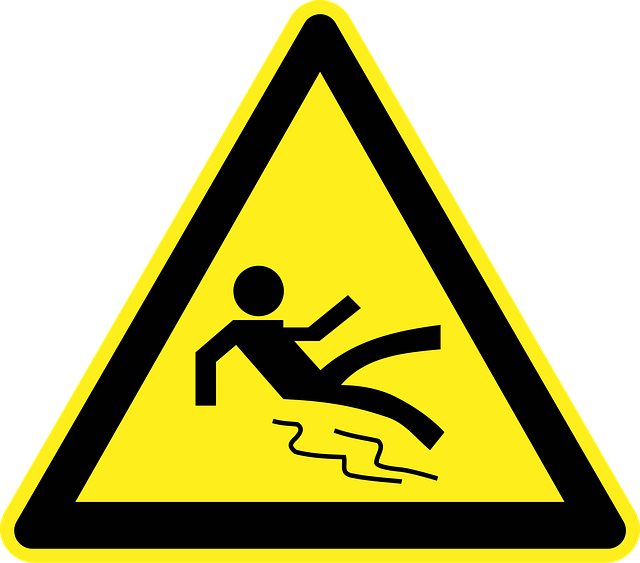Background checks for security personnel, or security guard background screening, are critical for maintaining safety and integrity in the industry. Through comprehensive investigations, organizations verify applicants' identities, employment, criminal histories, education, certifications, and past behaviors to assess suitability for guarding sensitive areas. Rigorous screening methods include advanced verification techniques, reference checks, and specialized assessments for high-risk positions. This process ensures competent security guards, mitigates risks, and upholds operational integrity, enhancing overall safety in diverse sectors.
In the dynamic landscape of security, ensuring the integrity and reliability of personnel is paramount. Background checks play a crucial role in the security industry, serving as a robust shield against potential risks and threats. This article delves into the significance of thorough background screenings for security guards, exploring key elements, legal considerations, and strategic approaches to enhance safety through meticulous investigations. By understanding these aspects, organizations can implement effective risk mitigation strategies, fostering a secure environment.
- Understanding the Importance of Background Checks
- Key Elements in Security Guard Screening Process
- Legal Requirements for Comprehensive Checks
- Enhancing Safety Through Detailed Investigations
- Effective Strategies for Risk Mitigation
Understanding the Importance of Background Checks

Background checks are an indispensable component in ensuring the effectiveness and integrity of security personnel. In the dynamic landscape of security, where guards often interact with diverse individuals and sensitive information, meticulous background screening is paramount. These checks serve as a critical layer of protection against potential threats, ensuring that only trustworthy individuals are entrusted with safeguarding people, property, and vital assets.
Comprehensive background investigations verify an applicant’s identity, employment history, criminal record, educational qualifications, and any relevant certifications. By scrutinizing these aspects, security organizations can identify red flags and make informed decisions to mitigate risks. Effective background checks for security personnel not only uphold the integrity of the industry but also foster public safety, making it a cornerstone of responsible security management.
Key Elements in Security Guard Screening Process

The screening process for security guards involves several critical steps designed to ensure the safety and security of individuals and properties. Firstly, comprehensive background checks are conducted to uncover any potential red flags. This includes verifying employment history, checking criminal records, and assessing past behavior through reference checks. The goal is to identify any patterns of misconduct or untrustworthy actions that could pose risks in a security role.
Additionally, educational qualifications, certifications, and training records are thoroughly examined. Validating these ensures that guards possess the necessary skills and knowledge for effective duty performance. Other considerations may include evaluating mental health, substance abuse history, and personal references to gain insights into their character and integrity. These elements collectively contribute to a robust security guard background screening process, fostering a reliable and professional security force.
Legal Requirements for Comprehensive Checks

In the realm of security personnel hiring, especially for roles involving direct interaction with sensitive areas or individuals, legal requirements mandate comprehensive background checks. These checks extend beyond basic employment verification and criminal record reviews. They encompass a detailed examination of an applicant’s history, including but not limited to their education, previous employments, and any relevant certifications. The goal is to identify potential risks or red flags that may indicate unfitness for the role, ensuring public safety and compliance with legal standards.
Background checks for security personnel often involve sophisticated screening methods. This includes verifying identity, checking against national databases for outstanding warrants or adverse information, and conducting reference checks. For high-risk positions, additional scrutiny may be required, such as credit history reviews, mental health assessments, or even drug screenings. Such thorough investigations are vital to mitigate risks associated with hiring individuals who could potentially compromise the security they are tasked with maintaining.
Enhancing Safety Through Detailed Investigations

Background checks for security personnel are a critical component in enhancing safety across various sectors. These detailed investigations delve into an individual’s history, including their employment, education, and criminal records, to ensure they are suitable for safeguarding sensitive areas. By implementing robust background screening processes, security companies can mitigate risks associated with hiring individuals who may pose potential threats or have undisclosed vulnerabilities.
Thorough background checks act as a filter, allowing employers to make informed decisions when selecting security guards. This meticulous process not only safeguards the organizations and their assets but also ensures the well-being of the public, especially in high-risk environments. With an increasing focus on security, these investigations play a pivotal role in fostering a secure and reliable security guard workforce.
Effective Strategies for Risk Mitigation

Effective risk mitigation in the security industry hinges on robust background checks for security personnel, which serve as a crucial first line of defense against potential threats. Security guard background screening involves a comprehensive review of an individual’s history to ensure they meet the required standards and are fit for their assigned roles. This process includes verifying employment history, checking criminal records, assessing past behavior, and gauging suitability based on specific job requirements.
By implementing rigorous security guard background screening procedures, organizations can significantly reduce the risk of insider threats, minimize liability, and uphold the integrity of their operations. It’s not just about identifying red flags; it’s about painting a holistic picture of an applicant’s character and trustworthiness. This proactive approach to risk management ensures that only reliable and competent individuals are granted access to sensitive areas, thereby enhancing overall security measures.
